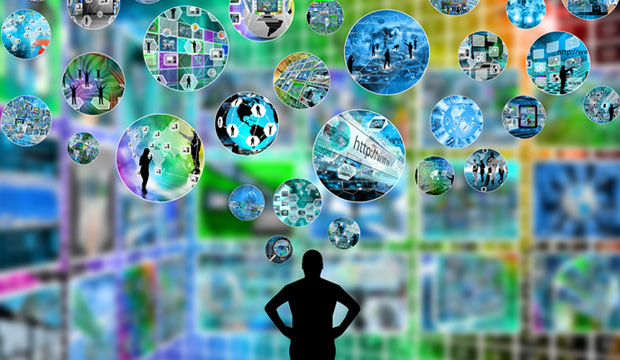In this era of stress and anxiety, being able to slow down, breathe, and focus on the moment at hand are key skills for surviving and being successful. Mindfulness has become a vital commodity, and those who can coach others to live more mindfully are in particularly high demand. An industry has grown up that offers everything from streaming yoga classes to meditation apps.
“Most people are overwhelmed and feel they can barely keep up with daily demands,” said health and wellness coach Cheryl Jones, owner of The Mindful Path.
“Running around in fight-or-flight mode, in a state of constant distraction, has become a way of living for many,” she told the E-Commerce Times. “Mindfulness empowers us with a way to navigate our fast-paced, overloaded modern life and experience more joy, greater meaning, and deeper connection to self and others. It helps us prioritize and set boundaries so that we can live according to our personal values.”
The Meaning of Mindfulness
Awareness is key to the power of mindfulness, according to practitioners.
“Mindfulness involves noticing what is happening within us and around us with curiosity and self-kindness,” explained Jones. “Meditation is the exercise that strengthens our capacity to be fully present during the moments of the day. Mindfulness is a particular way of engaging in life. It’s about being present in the moment, the one we are in right now.”
Another key component of mindfulness is letting go of immediate judgment and the need to control a situation.
“Mindfulness is nonjudgmental, moment-to-moment awareness of your experience, which means simply noticing what’s happening for you right now without judging it to be good or bad, right or wrong, without trying to fix anything or thinking it should be different,” said mindfulness instructor and consultant Sean Fargo, founder of Mindfulness Exercises.
“It’s simply noticing what’s happening for us,” he told the E-Commerce Times. “That can include noticing internal sensations in the body, what’s happening in any of our five senses, how emotions are manifesting for us, and what types of thoughts we’re having. We tend to get distracted or judgmental about a situation, and our experience can be unpleasant, so it’s often counterintuitive to be open to what’s unpleasant, and allow it to be as it is.”
Benefits of Mindfulness
Mindfulness can help people function better in their daily lives as individuals, and mindfulness consultants often work on this level.
“Mindfulness helps us achieve greater health in all areas of life as well as fosters a sense of well-being,” said The Mindful Path’s Jones. “It enhances our ability to cope with physical pain and builds resilience. It improves emotional intelligence and helps us be less reactive in stressful situations. It improves focus and provides clarity to solve problems. Perhaps most importantly, mindfulness helps us create new habits.”
There are also many ways that companies benefit from the adoption of mindful practices — including more effective teamwork and collaboration, higher performance, increased efficiency and higher job satisfaction.
“The three benefits that most companies are interested in are emotional regulation, resilience and mindful communication skills,” noted Fargo.
“Mindfulness helps us to increase our emotional intelligence, which allows us to help regulate our emotion in real time by knowing what emotions are actually present, and strengthening our ability to be with them and respond appropriately without reacting,” he continued.
“Mindfulness helps us cultivate resilience by remembering our values, knowing that challenges and struggles are common, that we have the inner resources to get back up on our feet, and by not taking things too personally,” Fargo said. “And mindfulness helps us to communicate with presence and allows us to truly listen to other people.”
Mindful Services
Mindfulness coaching and consulting has become a big business, and many companies seek these kinds of services to help boost their employee satisfaction and to give their businesses an edge.
“From a neuroscientific perspective, mindfulness is the most powerful strategy that allows us to bring out our full potential, regardless of the developments in the outside world,” said Karolien Notebaert, CEO of Notebaert Consulting.
“Nowadays, we live and work in a world where change is the only constant,” she told the E-Commerce Times. “We are specialized at long-term transformations of business cultures into mindful ones. The key here is repeated practice and integration of mindfulness into the existing company culture.”
The company explains the science of mindfulness to its clients, teaches employees how to practice it, and tailors its offerings for each particular business’s needs. Finally, it seeks to bring about long-term transformation in a company’s culture.
“We make sure the organization sets up structures to successfully integrate mindfulness into their business,” said Notebaert. “This last point is of crucial importance, as it results in the company being able to fully live their mindful culture, independent from our initial engagement in this transformation process.”
In addition to providing mindfulness coaching and consulting, some companies incorporate mindfulness into their products and services. The communications and brand marketing consultancy Style House, for instance, makes an effort to provide mindful marketing and PR services for its clients.
“As an entrepreneur, I had my own mindfulness journey, trying to figure out how to do it all,” recalled Janna Meyrowitz Turner, president of Style House.
“Mindfulness is something that’s really changed my life,” she told the E-Commerce Times. “It takes a long time to build a meditation practice and to see the effect of it. As a communications professional. I feel a duty to use my skills to communicate something that’s kind of esoteric to the masses.”
Encouraging mindful and empathic marketing is one way Turner brings mindfulness to her clients.
“As marketers, if we’re serving our clients, they want to reach a certain audience, and our job is to guide them to be more mindful in doing that,” she said. “It plays into having a larger consciousness. If you’re trying to market to busy millennial moms, for instance, you don’t have to tell them how busy they are. As marketers, we have a responsibility to be empathic.”

























































Social Media
See all Social Media